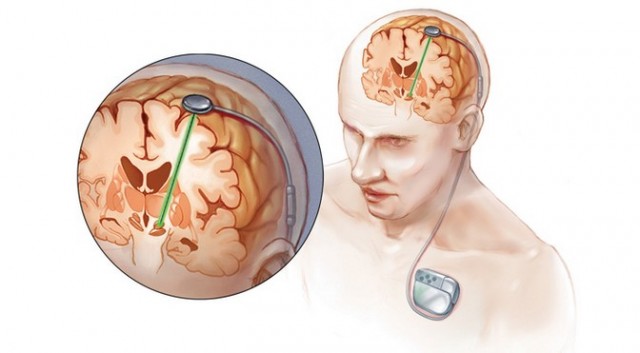DBS surgery was first allowed in 1997 for the treatment of Parkinson’s disease (PD) tremor, and then in 2002 for the treatment of advanced Parkinson’s symptoms. In 2016, DBS surgery was approved for people in the early stages of Parkinson’s disease (PD) who were suffering from the disease for at least four years and whose motor symptoms are not sufficiently regulated by medication.
An overview of deep brain stimulation surgery
During DBS surgery, electrodes are implanted into a targeted portion of the brain, and brain cell activity is recorded using MRI (magnetic resonance imaging). An IPG, or impulse generator battery, is implanted in a second operation (like a pacemaker). Under the collarbone or in the belly, the IPG is implanted. An electrical impulse is sent from the IPG to a part of the brain that controls muscle activity. DBS patients are given a controller that allows them to switch the system on and off.
It is most effective for people who suffer from debilitating tremors, wearing-off periods, and medication-induced dyskinesias, with research indicating that the effects last at least five years.
DBS includes a slight risk of infection, stroke, trauma, or epilepsy, as do all brain operations. Speech clarity can be affected as a result of DBS surgery. After DBS surgery, a small number of people with PD have experienced cognitive loss.
3 major components of deep brain stimulation
- The lead (also known as an electrode) is a thin, shielded wire that is inserted into the brain through a small opening in the skull. The electrode’s tip is placed inside the targeted region of the brain.
- The extension is an insulated wire that connects the lead to the neurostimulator and is passed under the skin of the head, neck, and shoulder.
- The third part is the neurostimulator (also known as the “battery pack”), which is typically inserted under the skin near the collarbone. It can be inserted lower in the chest or under the skin over the abdomen in some cases.
Best hospital for deep brain stimulation surgery
Thanks to its high-quality healthcare standards and a pool of sought-after neurologists and neurosurgeons, Turkey has become a popular destination for deep brain stimulation surgery. Even though the procedure is still in its progress not only in Turkey but around the world, Turkey has a high success rate due to the availability of internationally qualified physicians, modern technology, and safe care. In various JCI-certified Turkish medical centers, over 1200 neurosurgeons practice. Below mentioned are the best hospital for DBS surgery in turkey:-
- Memorial Sisli Hospital, Istanbul, Turkey
- Anadolu Medical Center, Kocaeli, Turkey
- Memorial Atasehir Hospital, Istanbul, Turkey
- Medipol Mega Hastaneler, Istanbul, Turkey
- Memorial Bahçelievler Hospital, Istanbul, Turkey
- Memorial Kayseri Hospital, Kayseri, Turkey
- iv Hospital, Istanbul, Turkey
The excellent healthcare system in Turkey, such as hospitals, clinics, and fitness centers, attracts people. Low appointment fees, low-cost medical treatments, and inexpensive drugs are all factors that contribute to the success of medical tourism in Turkey. While Deep Brain Stimulation is still in its infancy in Turkey, DBS surgery cost in Turkey is very affordable when compared to other countries, especially developed countries. The country is home to a large number of world-class multispecialty hospitals that provide unrivaled medical services with high success rates, can handle several specialties, and perform a wide range of surgeries. The majority of hospitals have gained accreditation from international organizations that ensure that they not only follow evidence-based standards, but also prioritize access, affordability, reliability, consistency, and efficacy of treatment.
Medigence
Medigence is a technology-driven global network that assists patients in identifying and using the best-in-class international medical care options for a positive patient experience.
We are committed to empowering our medical travelers to make the best healthcare decisions possible with the aid of technology, resulting in a better treatment experience abroad, as mentioned in our brand slogan, “Enabling Better Healthcare Decisions.”
MediGence’s telemedicine makes critical care available by allowing patients and their families to have video consultations with world-renowned surgeons in only a few easy steps. These meetings take place in private on our website, and healthcare records and all related patient information are kept safe on our HIPAA-compliant servers, which can only be accessed by the patients. It includes everything from seeking a second opinion to confirming a diagnosis to having trust in your treating doctors.
